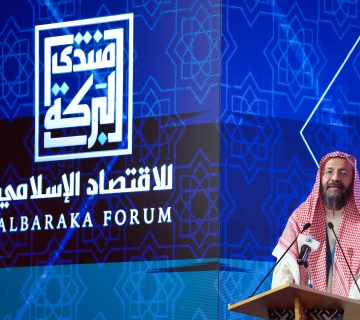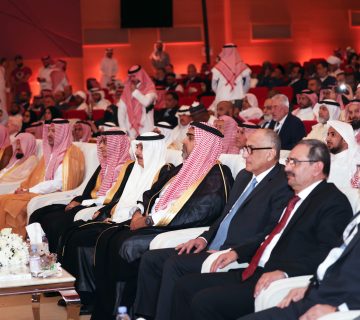During the second day of AlBaraka Symposium 43 for Islamic Economy, which was held under the title “The Sustainability Authenticity in Islamic Economy,” experts and specialists in the field of economy discussed various topics. The fourth session chaired by Dr. Walid Hegazy, AAOIFI Governance Board Member, focused on “Islamic banks and their impact on empowerment for sustainability.” He emphasized that the concept of sustainability is embedded in the objectives of Shariaah and should be nurtured and applied. He also stated that we need to produce tools, regulations, and laws that promote these objectives. Meanwhile, Islamic banks should uphold these objectives.
The fourth session started with a scientific paper titled “Maqasidi (objective-based) Index for Measuring the Sustainability of Islamic Banks,” presented by Dr. Mehmet Asutay, Professor of Middle Eastern and Islamic Political Economy & Finance at Durham University in the United Kingdom, and Dr. Alija Avdukic, Associate Professor in Islamic Economics and Finance at Business School of University of Dundee – UK. The paper discussed the need to integrate non-financial considerations, such as environmental and social impacts into financing and investment activities alongside common economic considerations.
The paper recommended that in order to apply the principle of Shariaah Maqasid (objectives), banks should report on their sustainability practices and how they are targeting specific stakeholder groups in their sustainability reports, and regularly monitor, audit, and report on compliance with these principles.
The paper also emphasized the need to develop sustainability standards for banks and to assess the impact of their financing activities, including both quantitative and qualitative measures, while taking into account sector-specific features.
Dr. Abdel Rahman Yousry -professor of Economics, Faculty of Economics and Political Science, Alexandria University- presented a scientific paper entitled “Towards Achieving Sustainable Islamic Banking Goals,” in which he highlighted the importance of distinguishing between Islamic banks and Islamic finance. He argued that the path to achieve “real” sustainability in Islamic banking has specific pillars, including the importance of continuing the growth of Islamic banking financing disciplined by Shariaah and Islamic ethics without resorting to loopholes. He added that this growth should be based on efficiency and competitiveness in financial and business markets, and that the way to achieve such efficiency in the coming years is only through actual and serious entry into direct financing of businesses in various sectors through participation, speculation, farming, cultivation, and watering/irrigation.
Dr. Zulkifli Hasan from the University of Sains Islam Malaysia (USIM) presented a scientific paper titled “Institutional and Shariaah-based Governance in Islamic Financial Institutions: A Pillar of Ensuring Sustainable Practices.” In that paper, he emphasized the importance of promoting sustainability in Islamic finance industry by integrating sustainability into their business and operations. The research study shows that Islamic finance has great potential to support the sustainability agenda in various ways by looking at the recent direction and development of sustainability in international financial institutions. He also added that Shariaah governance can be an effective driver for the sustainability agenda in Islamic finance.
The fourth session concluded with a scientific paper titled “Regulatory Authorities, Supervisory Bodies and Standard-Setting Institutions & their Role in Empowering Sustainability,” presented by Dr. Ahmed Mokhtar, a member of the General Secretariat of the Islamic Financial Services Board (IFSB). In the paper, he emphasized that issues of sustainability and climate risks have become a major focus in developing financial standards and regulatory frameworks, and increasing awareness of the threats posed by climate change to human civilization as a whole cannot be ignored.
He added that there is an additional effort that the industry must undertake to be on equal footing with its traditional counterpart in terms of sustainability.
The fifth session of AlBaraka Symposium 43 for Islamic Economy, which was held at the University of Prince Mugrin bin Abdulaziz in Medina, focused on sustainability projects and initiatives and discussed global models. The session was chaired by Dr. Syed Nazim Ali, Director of Research Division at the College of Islamic Studies, Hamad Bin Khalifa University, Qatar. The session included four papers, one of which was presented by Sharjil Ahmed, Co-Founder of Cykube, UK, entitled “Sustainability in Services: B. Corporation Model.” In which he highlighted the importance of meeting the requirements of social and environmental responsibility, as well as respecting governance and transparency standards towards the community.
Dr. Aasif Zaman, Head of Department of Accounting, Economics and Finance, Cardiff Metropolitan University – UK, highlighted in his paper titled “Sustainability in the Agricultural Sector: Fair-Trade Model” that Saudi Arabia and other Gulf countries are taking the lead in sustainable initiatives by adopting technology and reducing their dependence on agricultural imports, particularly grains.
In the third paper titled “Small and micro financing is one of the most important pillars of sustainability,” Mr. Basel Rahmi, Bassel Rahmy, CEO of Micro, Small and Medium Enterprise Development Agency – Egypt, mentioned that this type of enterprises represents 95% of the global rate, as it is the first line of defense against unemployment and is more resilient to multiple economic fluctuations. He pointed out that in Egypt, they account for only 43% of the GDP, which is a small percentage compared to other countries such as Italy, which has reached 95%. These enterprises are capable of reducing multiple economic burdens and contributing to sustainable development. Mr. Rahmi also highlighted the impressive technological progress of Saudi Arabia, especially in the field of service applications, which Egypt seeks to emulate. He reviewed some of the efforts made by his country to develop small, medium, and micro enterprises, including the establishment of unified tariffs and simplified tax procedures, as well as facilitating access to financing, improving the current situation of enterprises and giving incentives to outstanding enterprises, and provided examples of financing types and mechanisms for small enterprises.
Dr. Ashraf Hashim, Member of the Board of Directors of Tabung Haji Fund, Malaysia, addressed in the fourth scientific paper titled “Tabung Haji Malaysian Fund and its Role in Achieving Sustainability” the challenges and risks involved, as well as how to mitigate them and achieve success. He mentioned that Tabung Haji Fund was one of the first Islamic institutions to receive deposits and provide limited returns in the 1960s. He spoke about the Fund’s money management strategy and successes, as well as the fund’s responsibilities and its focus on investment quality, since the Fund has no shareholders, as its management is authorized and represented by all depositors. He added, “We only take the investment cost, which does not exceed 1% of the deposit value, and this is a reasonable percentage. All profits are automatically added to the depositor’s account, and the depositor can deposit and withdraw funds within an hour if they wish, which is not possible with other banks and investment institutions.”
He also noted that the lack of alignment between the high expectations of depositors and expected profits was the main obstacle that was overcome by providing incentives to depositors. However, the high cost of these incentives led them to withdraw the amount from their profits after several years. He also reviewed a range of investment contributions made by the Fund in real estate, financial services, information technology, and maritime projects. He emphasized that the main framework of the work was based on transparency, as the non-profit institution sought to implement sustainability by relying on clean energy sources such as solar energy in all of its buildings and facilities. Environmental health and social governance were among its top priorities.




